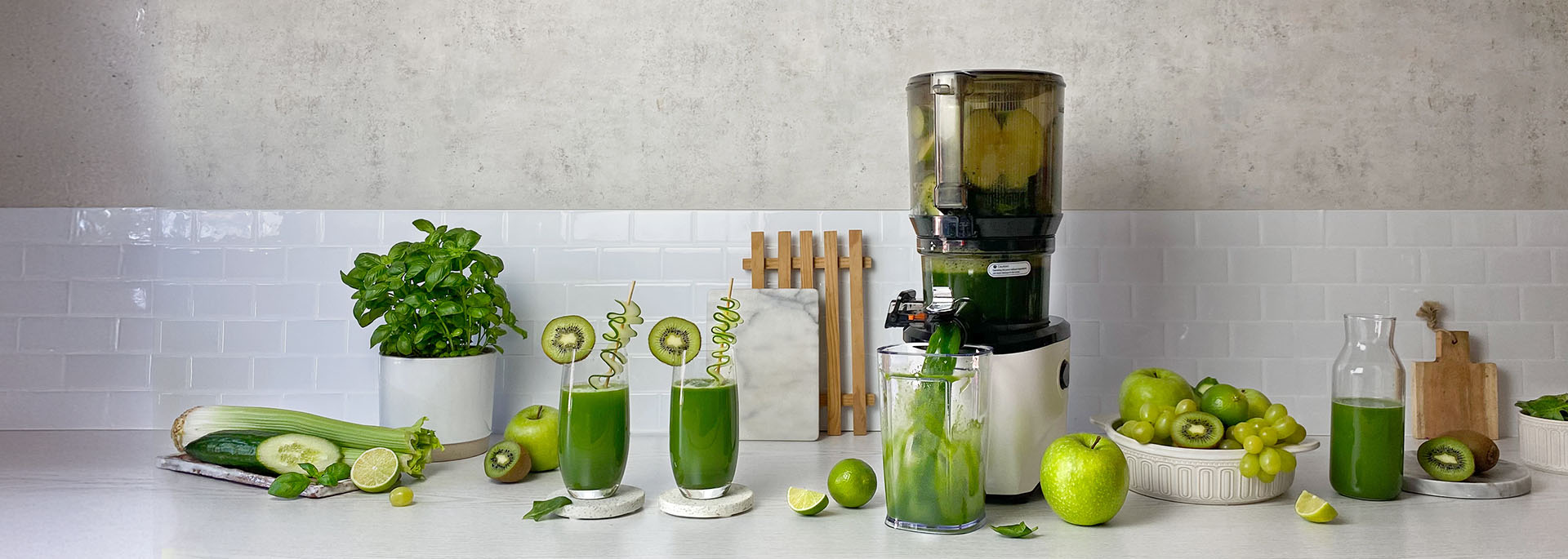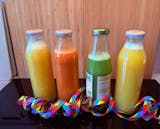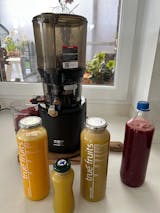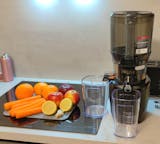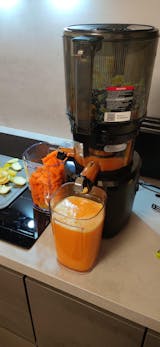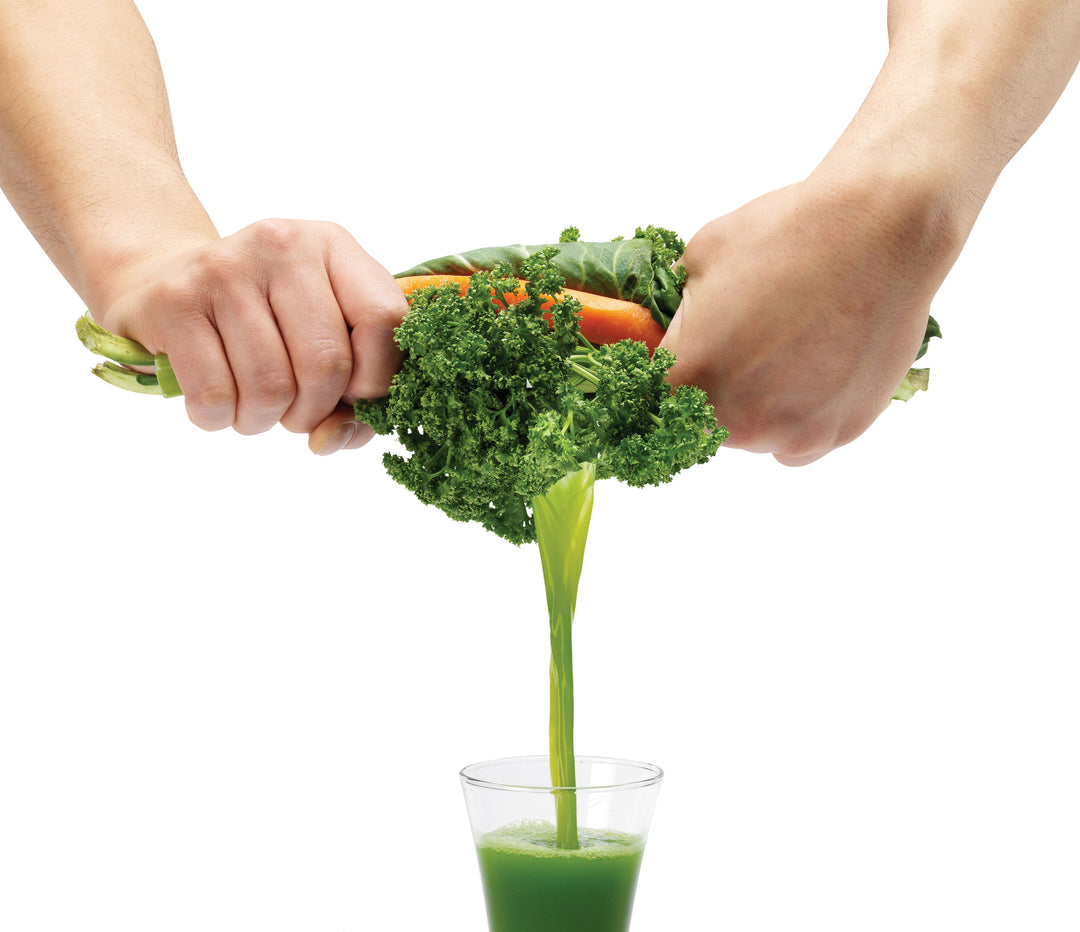
What does “cold pressing” really mean?
Cold-pressing juicing is less about temperature than about the method of extracting the juice. Cold-pressing involves gently "pressing" fruits and vegetables to extract the juice—similar to traditional winemaking.
In the past (and sometimes still today), grapes were processed by gentle pressing – sometimes even with the feet. This process is as natural as possible and allows the natural quality of the grapes to be preserved. The pressed juice then serves as the basis for further processing into wine.
This traditional technique demonstrates that cold-pressing is not only gentle but also effective in preserving the full flavor and valuable nutrients of the ingredients—a method we use today to create healthy, fresh juices. 🍎🍊
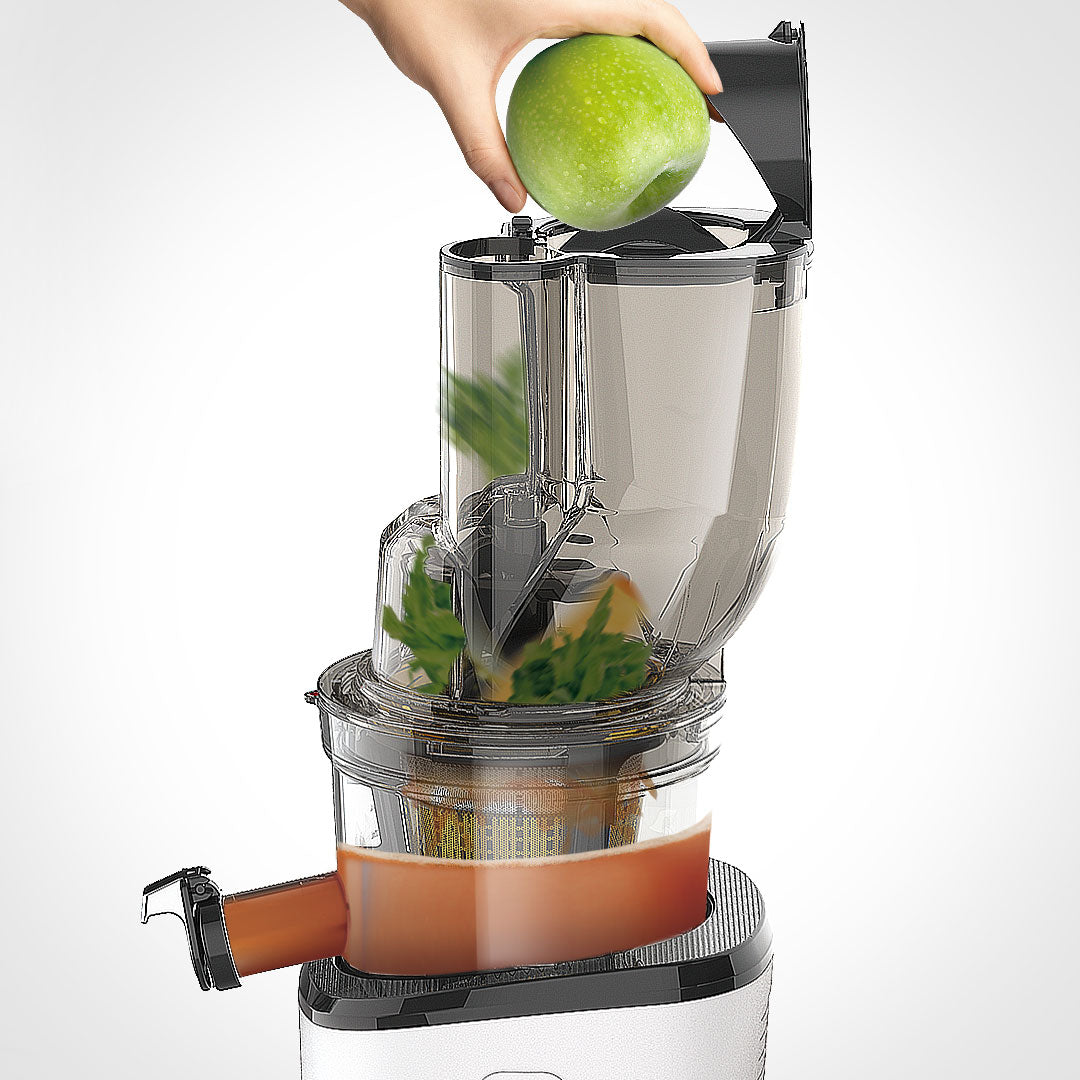
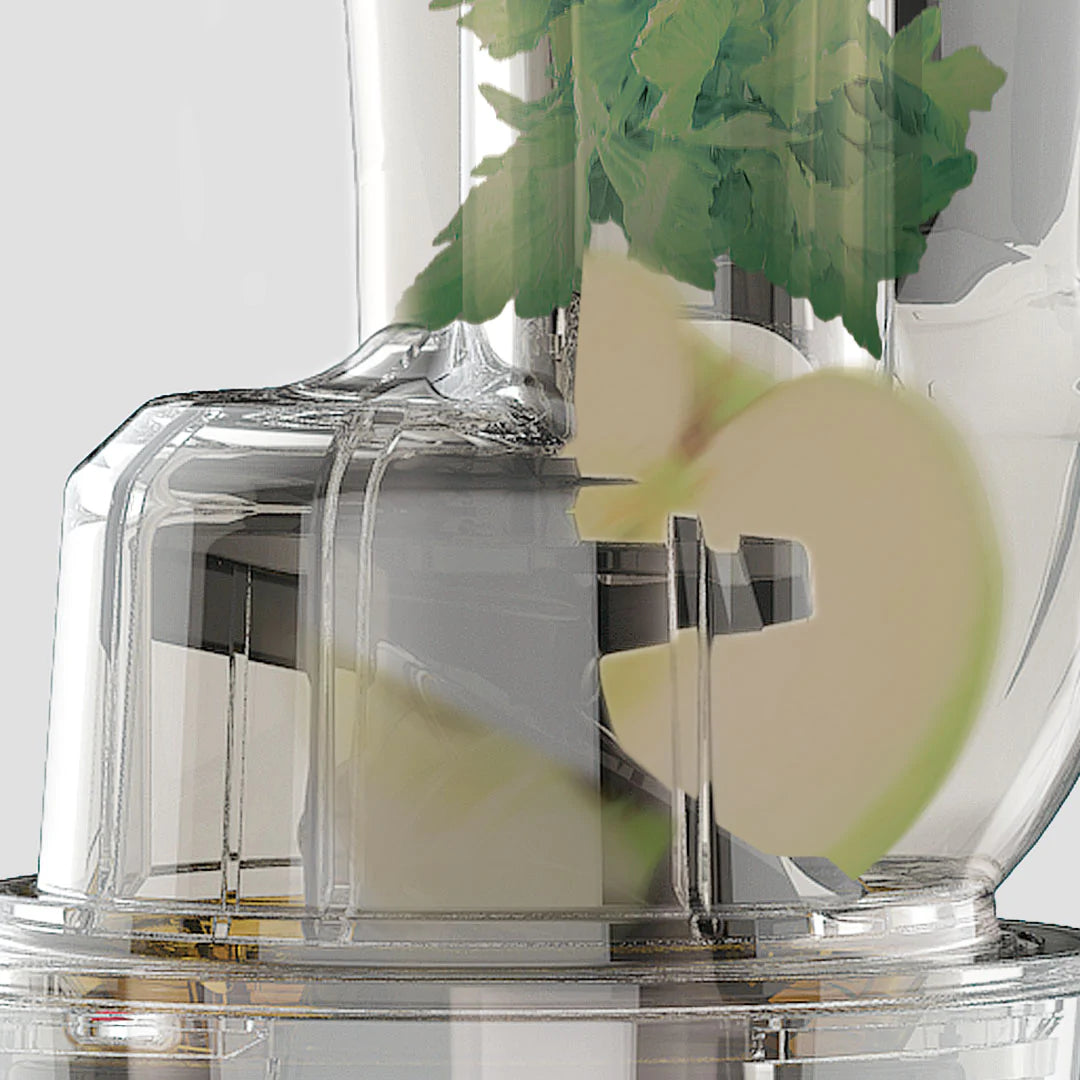

Why cold pressing preserves natural goodness
When we cold-press fruits and vegetables, their natural goodness is fully preserved. During the pressing process, the insoluble fiber is removed—the fiber that acts like a "broom" through our digestive tract. What remains is the soluble fiber that directly nourishes our cells and supplies them with important nutrients.
All the vitamins and minerals naturally found in fruits and vegetables remain fully intact in juice made with a cold-press juicer. The result is a pure, nutrient-rich juice that not only tastes great but also directly contributes to our body's nutrition—a perfect way to enjoy natural freshness and health. 🍎🍊🥕
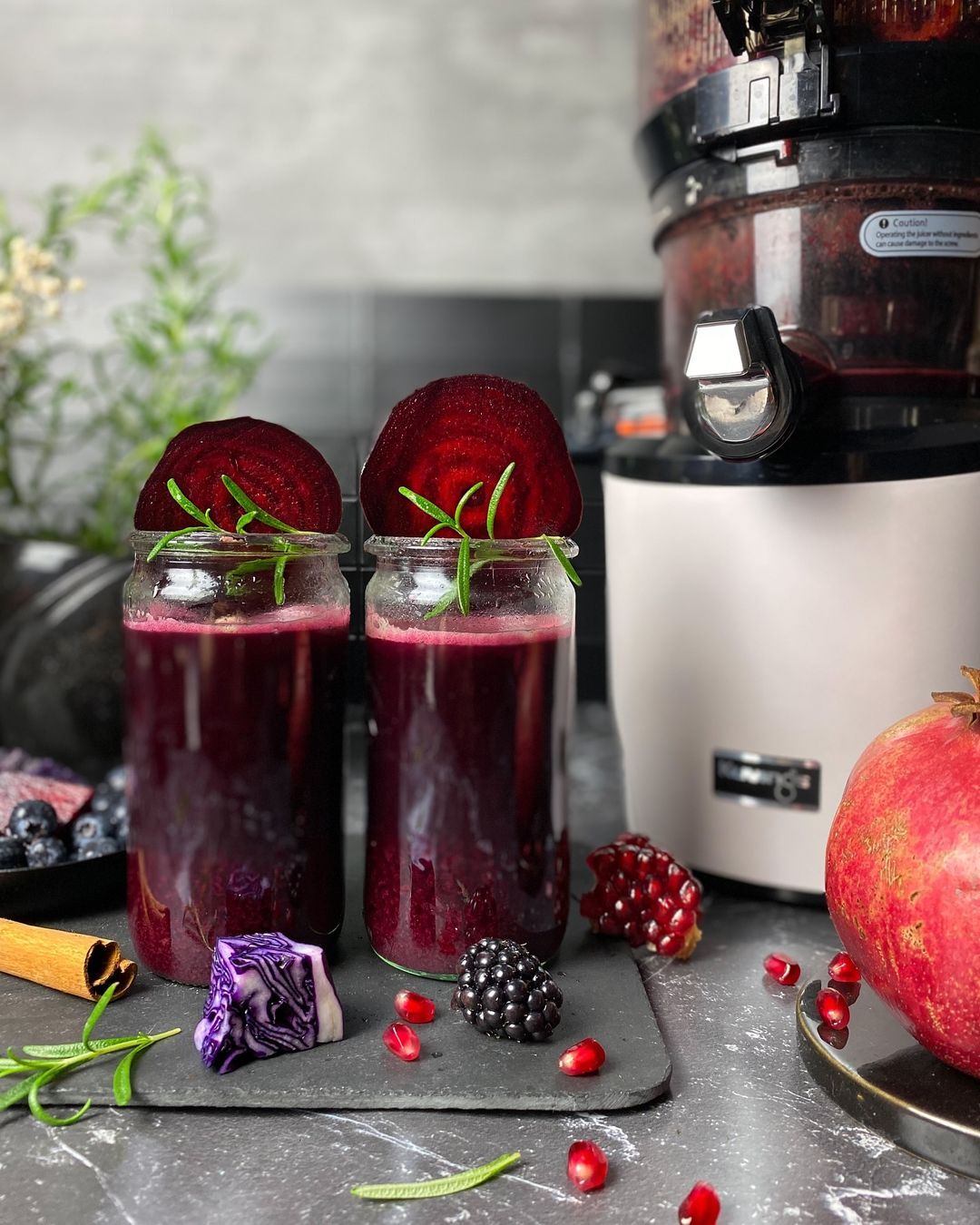
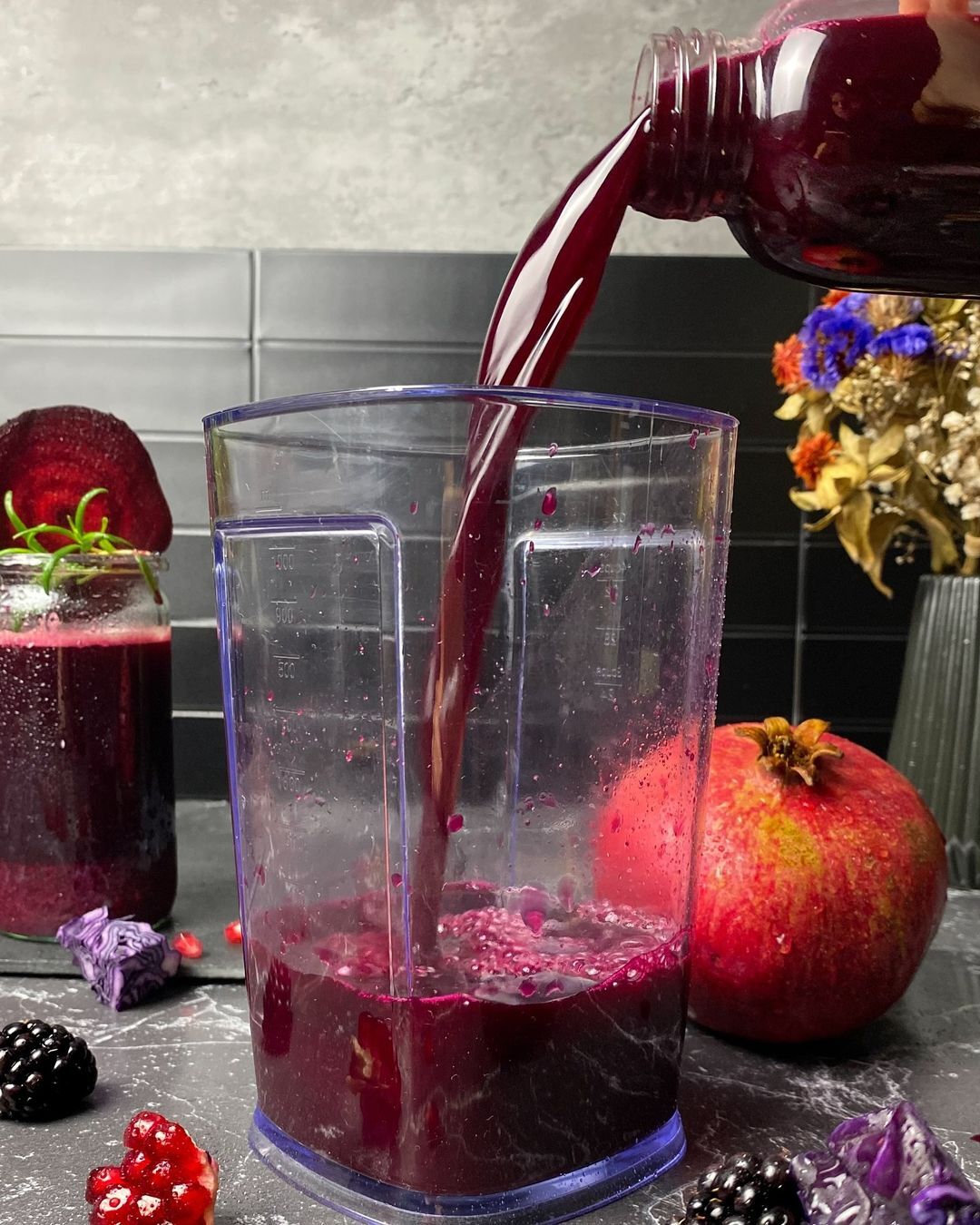
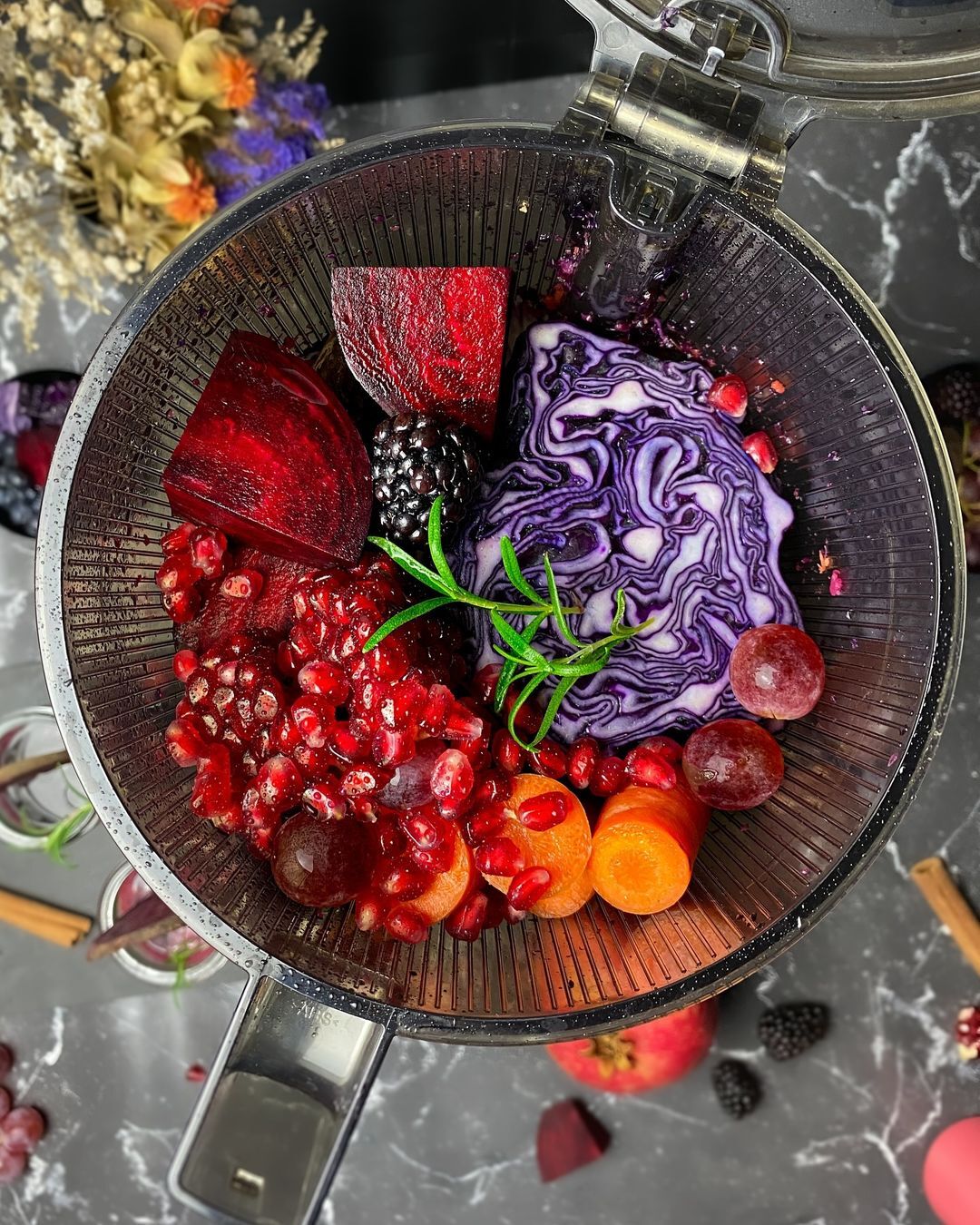
―
01
Benefits of Cold Pressed Juice
Why cold pressing is better
Cold-pressed juice offers many advantages that make it a better choice – especially compared to conventional juicers:
- More juice : The gentle pressing method extracts more juice from the ingredients.
- More nutrients : Heat-sensitive nutrients such as vitamin C and raw enzymes are fully preserved.
- Longer shelf life : Cold-pressed juice can be stored in the refrigerator for longer without losing quality.
- Maximum benefit : You get the most out of your fruit and vegetables and reduce waste.
In contrast, conventional juicers with rapidly rotating blades generate heat that can destroy many valuable nutrients. These nutrients—which should end up in your juice—are literally "blown away."
Honestly, most people don't give their juice much thought. But once you experience the benefits of cold-pressed juice, you'll feel the difference—in taste, quality, and nutritional content. 🍎🍊🍹
Juice is juice, right?
Uhmmm, wrong.
Not all juices are the same – there’s a big difference!
At first glance it may seem like this: juice is juice, right?
False. Juices can vary considerably in their quality and their effect on the body.
- Sugary juices : Many commercially available juices contain large amounts of added, processed sugar. These unnecessarily raise blood sugar levels and provide few beneficial nutrients.
- Industrially processed juices : Some juices have neither the appearance nor the taste of fresh juice. They are often pasteurized and contain additives that significantly alter the natural character of the juice.
In contrast, freshly squeezed juice is a pure, nutrient-rich product that contains no unnecessary additives and preserves the flavor and benefits of nature. The difference lies in the quality and the effect on the body—and this is incomparably better with freshly squeezed juice. 🍎🍊🍹
After all, there's a reason people drink juice, right?
Yes, of course. Because it's a healthy drink that's good for you, your body and loved by your cells!
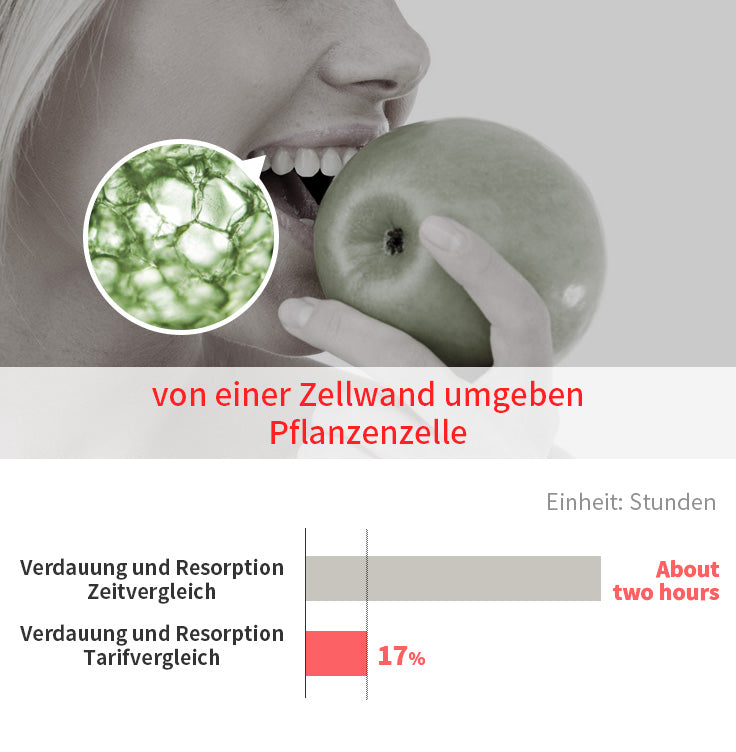
When chewing fruit
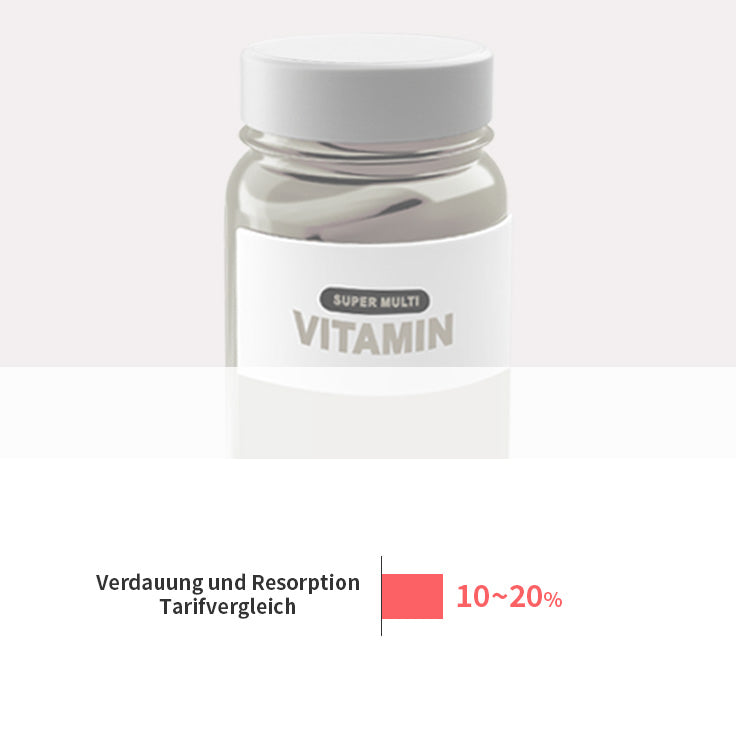
synthetic vitamins
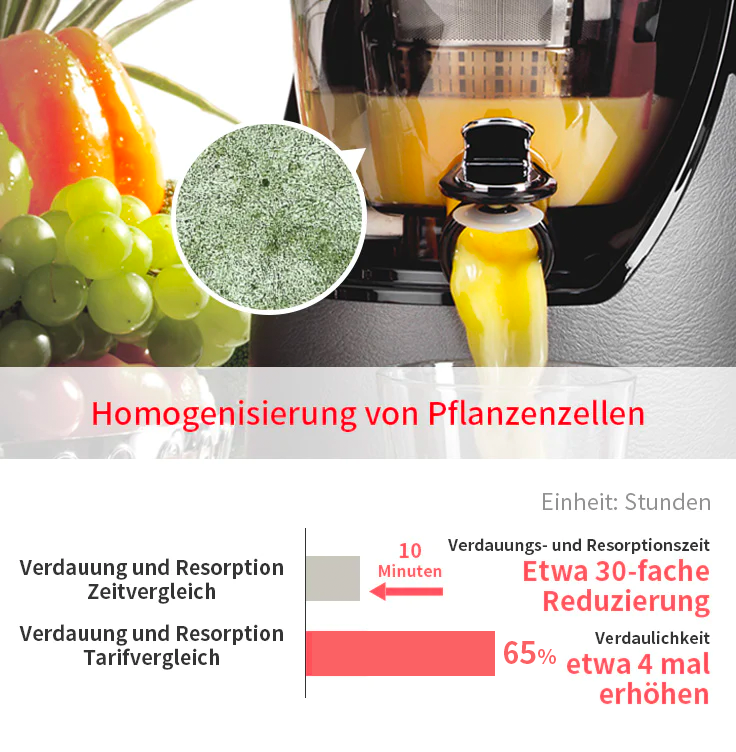
When juicing with a kuvings juicer
SUMMARY
More value and more health with cold-pressed juices
With cold-pressed juices, you not only get more for your money, but also a much healthier drink.
- More juice yield : Cold pressing extracts significantly more juice from fruits and vegetables, allowing you to get the most out of your ingredients.
- More nutrients : The gentle pressing method preserves heat-sensitive vitamins, enzymes and micronutrients that are often lost in conventional juicers.
Cold-pressed juice is not only a smarter investment, but also a conscious decision for your health – an incomparable pleasure full of freshness and nutrients.

―
02
Slow Juicer vs Centrifugal Juicer
What exactly is a slow juicer?
You've already learned that cold pressing involves extracting juice by gently pressing fruits and vegetables. The technology behind it is based on a so-called pressing screw, which rotates inside the device at a speed of approximately 52 revolutions per minute (rpm) .
Interestingly, this speed is roughly the same as the speed at which we chew our food – one reason why this method is so effective and lifelike.
A slow juicer therefore works slowly but extremely gently to ensure that all important nutrients, enzymes, and vitamins are extracted from the ingredients without destroying them through heat or excessive speed. The result is a pure, nutrient-rich juice that preserves the natural goodness of the ingredients—perfect for a healthy lifestyle.
The traditional method: centrifugal juicer
A traditional method for juicing fruits and vegetables is using a centrifugal juicer . These machines use rotating blades that spin at an impressive 12,000 revolutions per minute (rpm) .
This high speed crushes the ingredients, while centrifugal force separates the juice from the solids. While this method is fast, it has several disadvantages:
- The heat generated and the oxygen input can destroy heat-sensitive nutrients, enzymes and vitamins.
- The juice oxidizes more quickly, which can affect freshness and shelf life.
In comparison, slow juicers, such as cold-press juicers, preserve significantly more nutrients and enzymes thanks to their gentle operation – thus ensuring a healthier, more nutrient-rich juice.
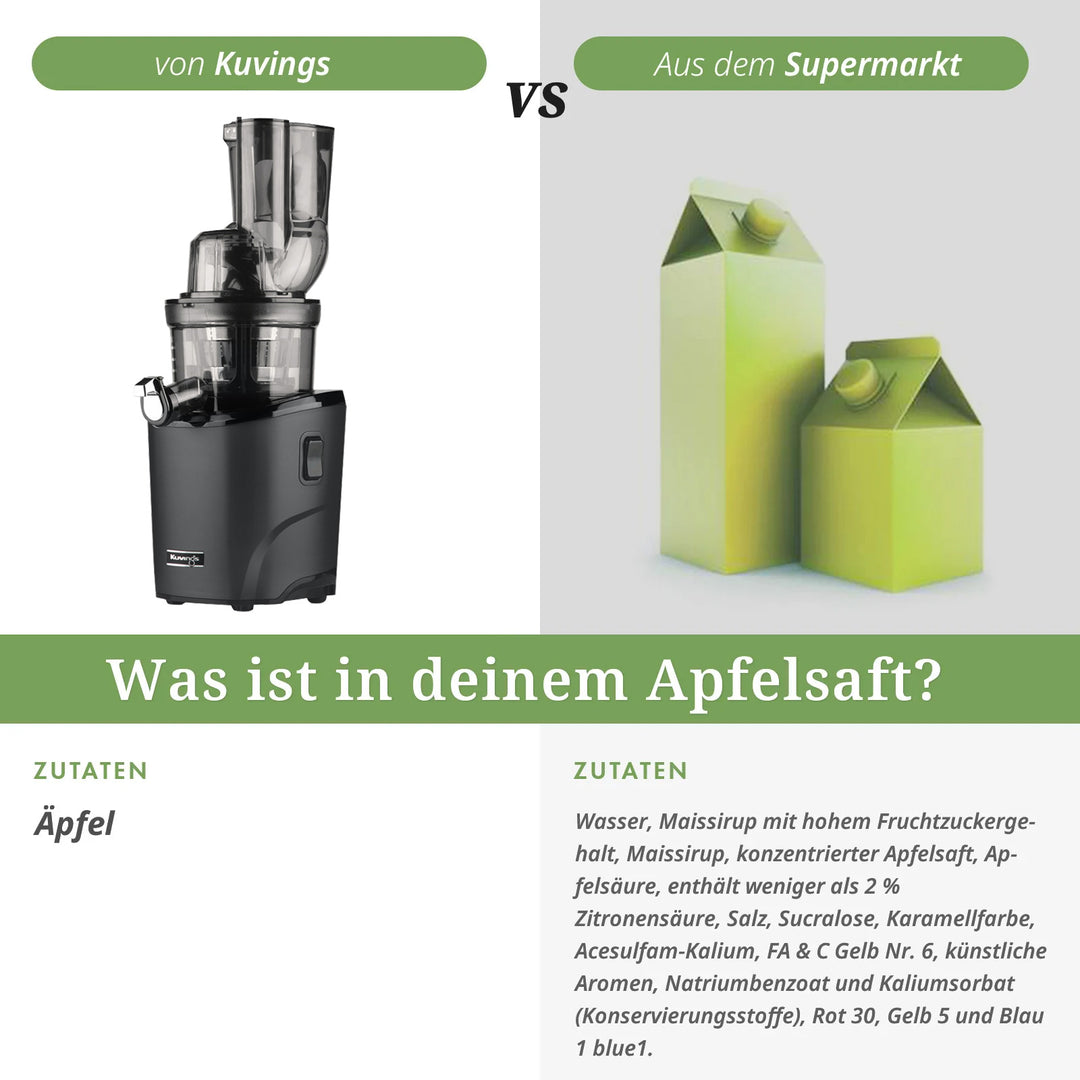
Why do we actually drink juice?
Quite simply – because juice is a healthy, nutrient-rich drink that's good for your body. Every cell in your body rejoices in the natural goodness that comes with fresh juice.
A glass of juice provides you with vitamins, enzymes, and micronutrients that nourish your body, boost your energy, and promote your well-being. It's the perfect way to do something good for your body—delicious, refreshing, and healthy!
Why is the method of juice extraction crucial?
There are different methods for making juice, but not all of them produce the same results in terms of nutrients and quality. Let's consider traditional centrifugal juicers :
Although this type of juicing is very fast, it has significant disadvantages in terms of the nutritional value of the juice:
- Fast-spinning blades : These operate at very high speeds, cutting fruits and vegetables like a machete. The resulting juice is pumped into the jug, while the pulp ends up in the jug as waste (or compost).
- Heat buildup and nutrient loss : The high speeds generate heat that can destroy heat-sensitive vitamins and enzymes before the juice even reaches your glass.
- Oxidation : The rapidly rotating blades draw air into the machine, causing the juice to oxidize. This leads to a separation of water and soluble fiber, which you can easily detect when the juice sits for a while.
- Watery consistency : The result is often a very thin and discolored juice that loses nutrients and freshness.
Why is cold pressing the better choice?
In comparison, a slow juicer (cold-press juicer) preserves the natural vitamins, enzymes, and nutrients through its gentle process. There's no heat buildup, and oxidation is minimized. The result is a fresh, pure juice with maximum nutrient density and a pleasant consistency.
Bottom line: Both methods have their advantages and disadvantages. While centrifugal juicing is faster, cold pressing produces higher-quality, healthier, and longer-lasting juice. Learn about the different options and choose the method that best fits your lifestyle! 🍎🍊🥕
Note: The image below shows the clear difference between juice from a fast-acting centrifugal juicer and a slow juicer (cold-pressed juice).
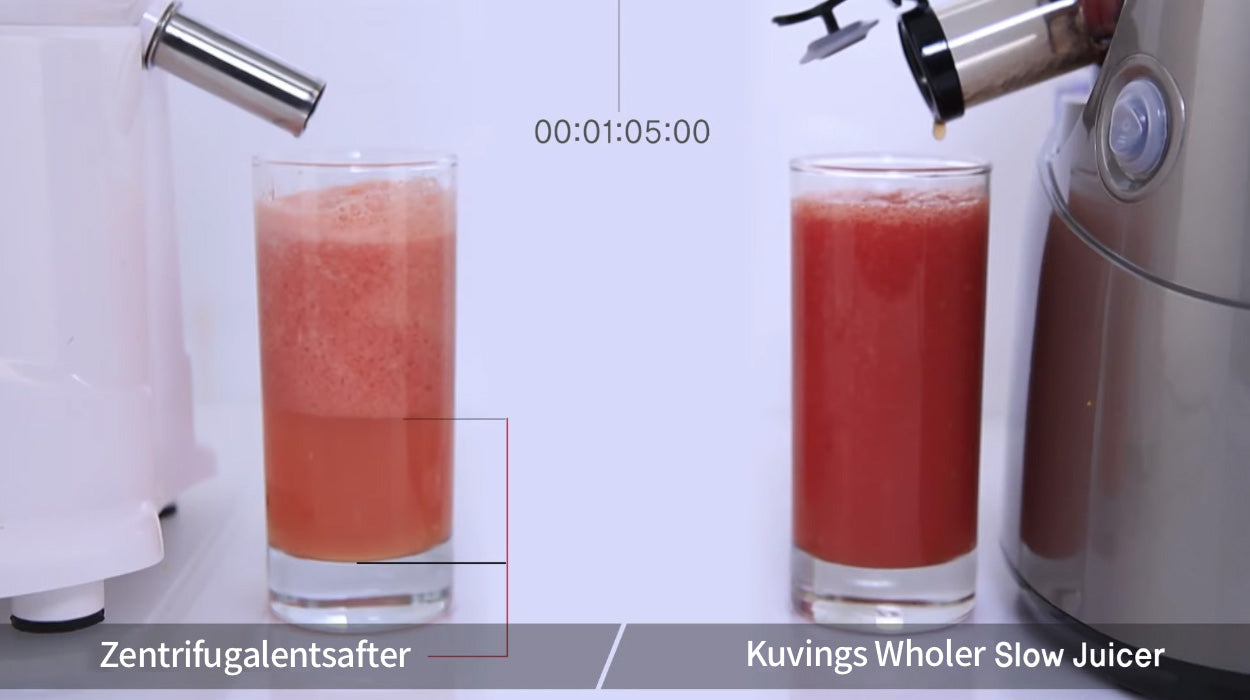

SUMMARY
Difference between slow and fast juicers
Slow juicers and fast juicers differ fundamentally in their operation and efficiency:
- Slow juicers / Fast juicers (centrifugal juicers)
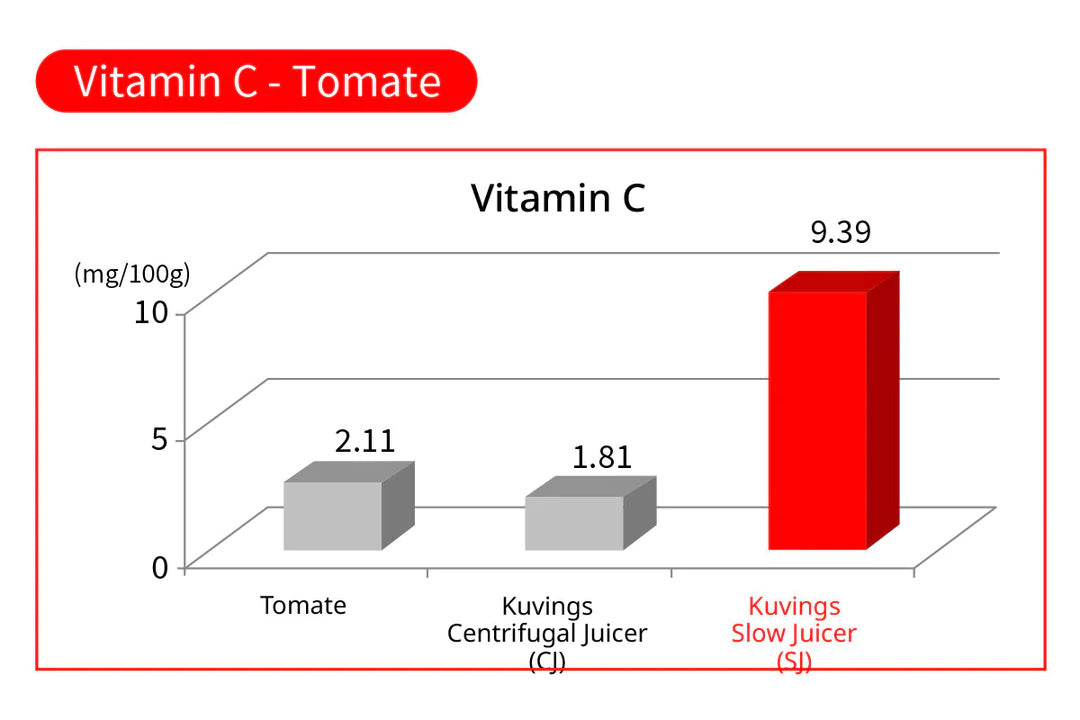
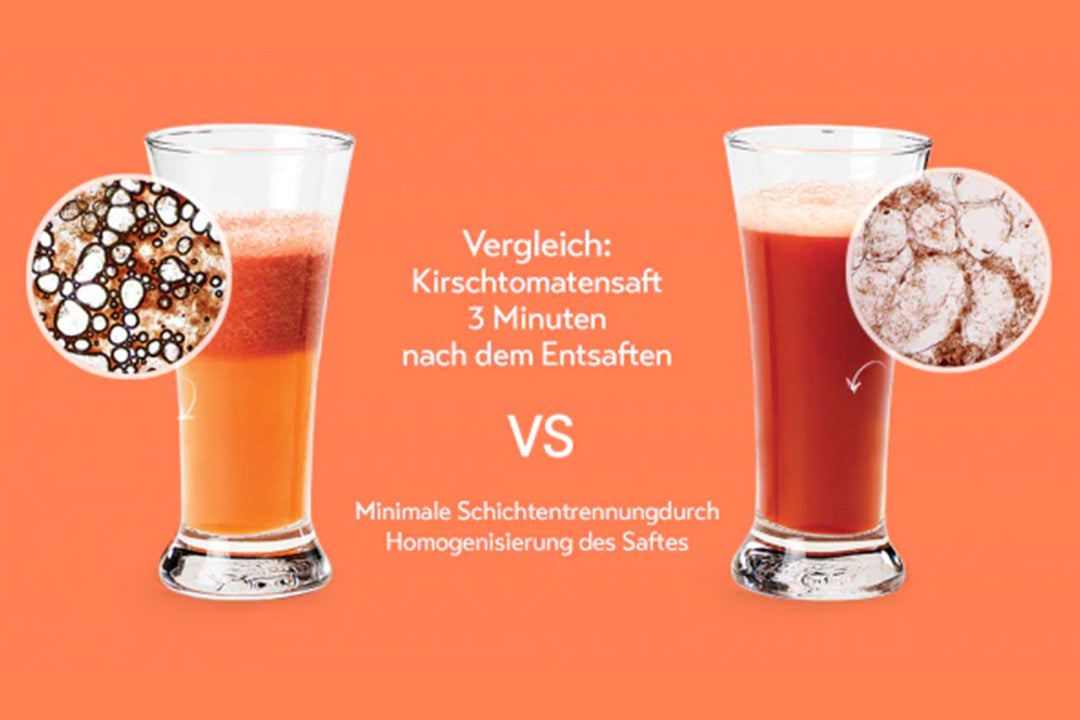
―
03
What about the fiber?
What about the fiber?
Of course, we rarely eat 10 carrots, 1 whole beet, 3 apples, 1 lemon, and a thumb-sized piece of ginger all at once—that's simply unrealistic. But with a cold-press juicer, you can enjoy all these valuable nutrients in a glass of juice in no time.
The best part? Your body can absorb the juice immediately because the digestive work is done for you: The insoluble fiber, which is difficult to break down, has already been removed. This means the nutrients go directly to your cells, providing your body with immediate energy and vital nutrients.
With cold-pressed juice, you enjoy the essence of nature in its purest form—quick, easy, and incredibly healthy. 🍎🥕🍋✨
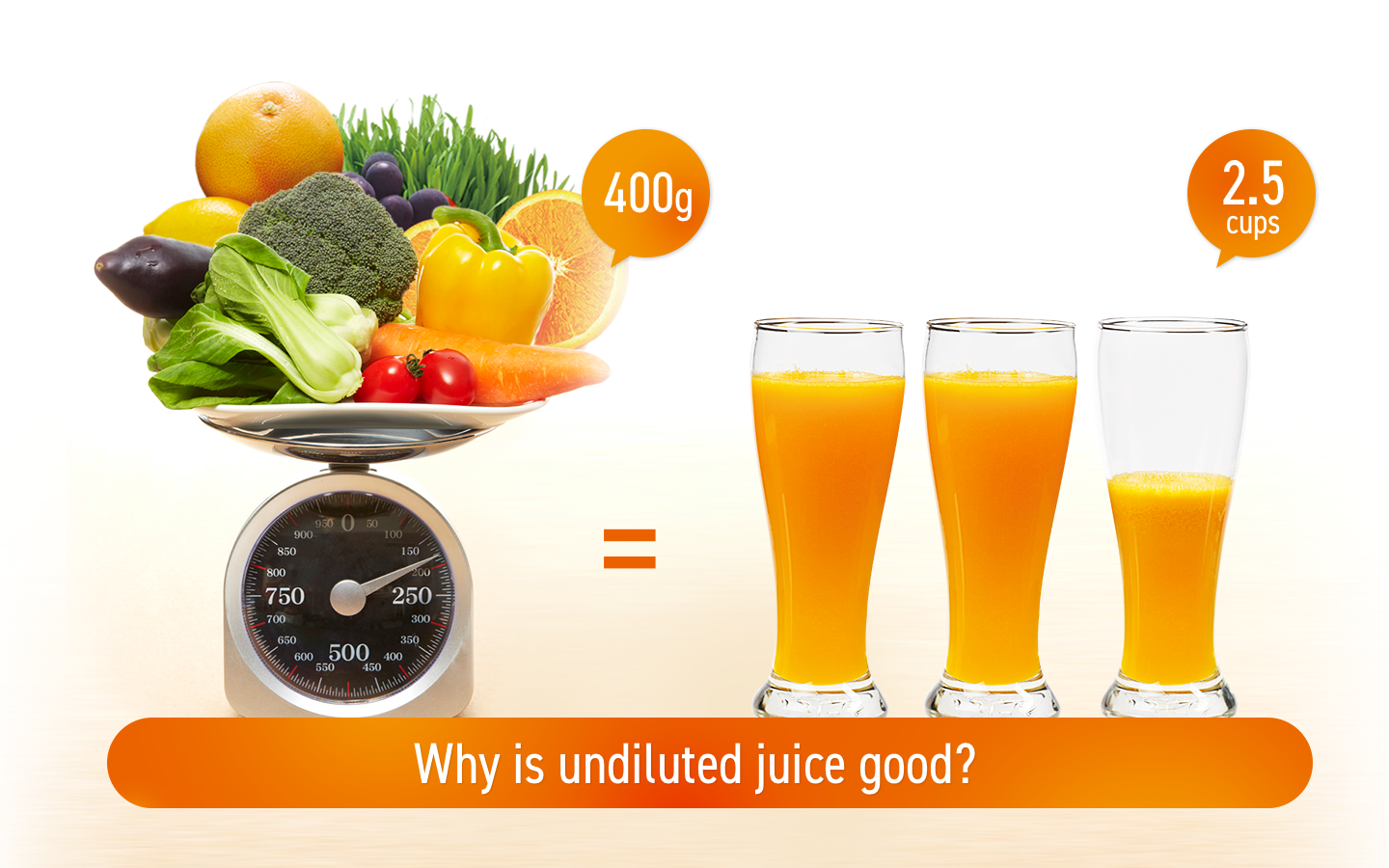
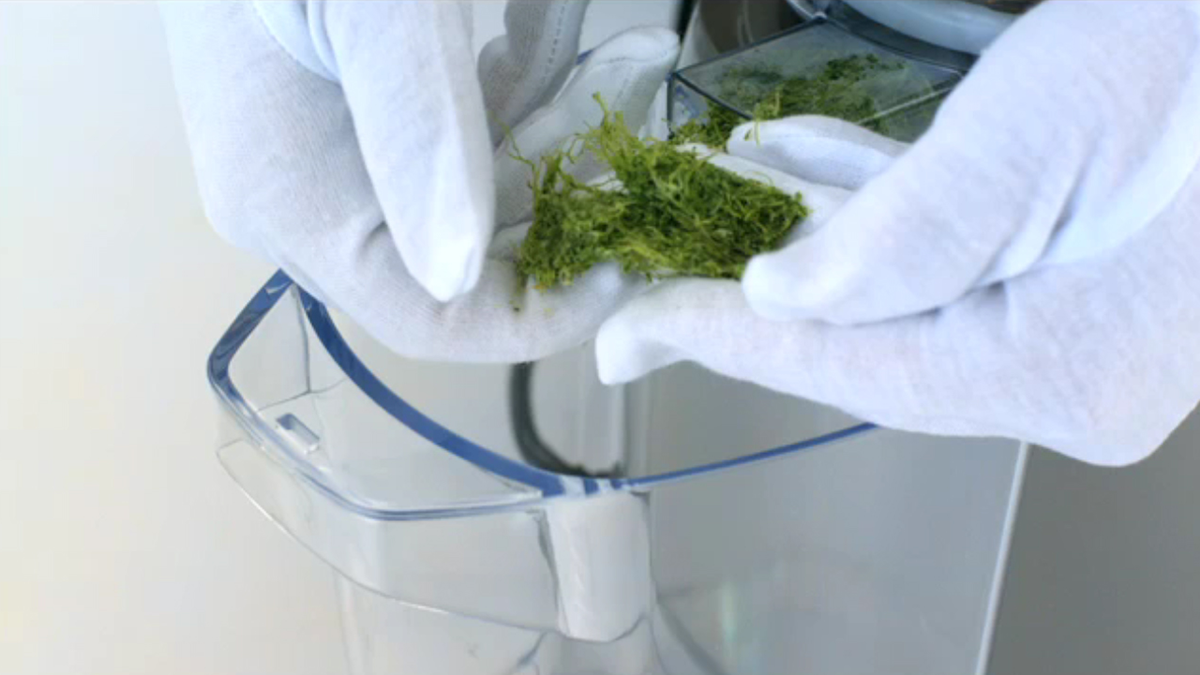
SUMMARY
The difference between soluble and insoluble fiber
- Soluble fiber :
These fibers are digestible and remain in a cold-pressed juice. They play an important role in nourishing our cells and promoting healthy digestion and stable blood sugar levels.
- Insoluble fiber :
These fibers are indigestible and primarily serve to detoxify the body. They act like a "broom," cleansing the digestive tract and are eventually excreted.
―
04
Why does cold-pressed juice last longer?
Compared to conventional juices, cold-pressed juice has the great advantage of having a longer shelf life – provided it is stored in a cool place.
Because the juice is extracted by slowly pressing and squeezing the ingredients, less oxygen is introduced into the process, slowing oxidation. This not only keeps the juice fresher and more nutritious , but also preserves its natural flavor.
Cold-pressed juice can be stored in glass bottles in the refrigerator for up to 3 days without loss of quality. This makes it ideal for a healthy lifestyle where you can enjoy fresh juice anytime—with all the benefits of nature in every bottle!
Cold-pressed juice not only brings freshness and vitality to your life, but also offers a convenient way to absorb the many living nutrients Mother Nature provides us with. This way, you always have a healthy, nutrient-rich juice on hand that enhances your well-being and enriches your life.
SUMMARY
No oxidation – longer shelf life for cold-pressed juice
A major advantage of fresh, cold-pressed juice is that the gentle pressing process prevents oxidation . This means the juice can retain its freshness, nutrients, and natural flavor for longer.
Thanks to this method, cold-pressed juice can be stored for up to 72 hours when properly refrigerated without any loss of quality. This allows you to make your juice in advance and enjoy fresh, healthy drinks whenever you want.




